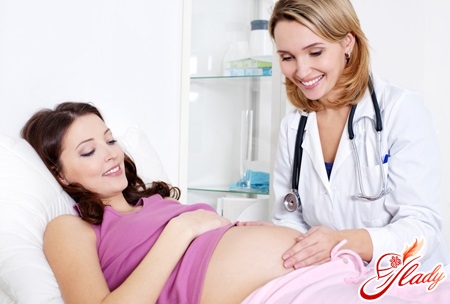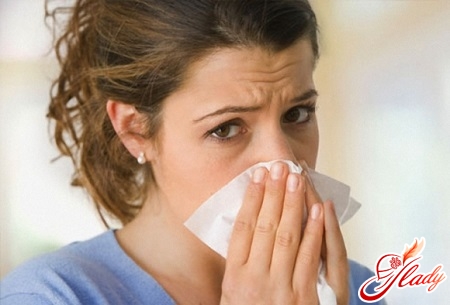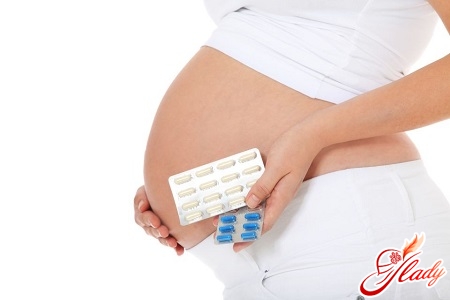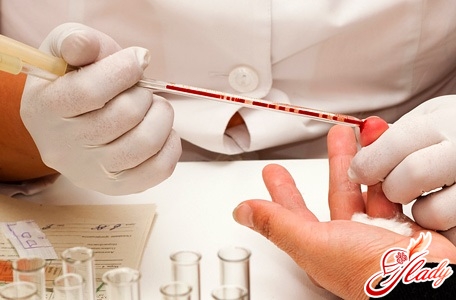
Allergy during pregnancy occurs in manyexpectant mothers. This phenomenon gives a lot of unpleasant sensations, so do not delay with treatment. And what are the symptoms and consequences of this disease? How to treat it? More on this below.
What is an allergy? We understand the essence of the concept
So before you know what to do, it's worth it.to understand the essence of such a phenomenon as an allergy during pregnancy. This disease occurs when a person gets certain substances or components, which are called allergens. And then the immune system recognizes these substances and begins to attack them, perceiving them as alien and completely unnecessary. There are all kinds of symptoms, which, incidentally, can apply to many systems and organs. So, a skin reaction may occur (for example, on the face or on the hands in the form of rash and redness). In addition, respiratory organs, eyes and even the digestive system are often affected. Allergens can be different substances. So, often allergic to pollen or even to ordinary dust. Allergens can be food. It is worth noting that often pregnancy affects the course of the allergy, but not always. For example, there is an opinion that hormonal changes occurring during the period of gestation (no matter in which trimester, but especially strong bursts occur early, most often in the first trimester) may be a trigger mechanism, that is, trigger the occurrence of allergic reactions. 
Symptoms of allergies: how to identify the disease
What are the symptoms of allergy? As already noted, an allergy during pregnancy can affect various body systems. So, several forms are distinguished depending on the manifestations in this or that particular case: respiratory allergy, cutaneous, food. This or that sign of the disease depends on what kind of allergen it was and how it got into the body. For example, if a product became a cause, then diarrhea or vomiting (but often in such cases there is a rash on the face, on the hands and on other parts of the body), if the air factor becomes the factor of influence, or rather, what is contained in it, then, most likely, there will be respiratory signs. So, let's list the main symptoms of allergy:
Consequences of an allergy during pregnancy: what threatens?
By itself, an allergy to a baby's futurepractically does not affect, because the fetus is reliably protected by the placenta, which functions as a shield and filter. But this does not mean that you can not do anything and do not take drugs against allergies. The disease often brings a lot of unpleasant sensations that in the early stages, when the body is rebuilding in a new way and experiencing heavy loads, is completely inappropriate (and in fact in the first trimester, it may also begin toxicosis). In the event that a severe rash appears on the face or elsewhere, the expectant mother itches, worries and is nervous, and it is absolutely impossible to do all this during the gestation period. In addition, for example, when reacting to pollen, it can lay a nose, which leads to a lack of oxygen. And oxygen starvation for the fetus at early stages of development can be disastrous, because at this time all organs are formed (although hypoxia is harmful at any time). And, at last, the doctor at occurrence of reaction (especially strong) will appoint medicines against an allergy. And during pregnancy even an ointment can be dangerous. So some components of the drugs can penetrate to the fetus and have a direct negative impact on it. Therefore, allergy is simply necessary to treat, and on time and correctly. 
How to treat allergy during pregnancy: notes
What should be the treatment of allergies?pregnancy? It differs from the measures against this disease in the usual state, since not all medicines are allowed in the period of gestation, even if it is an ointment. To begin with it is necessary to list the basic preparations and to specify, whether it is necessary to accept them and in what cases it to do or make.
- Suprastin. This drug is allowed in the second and third trimesters, but not always, but only in cases where the benefits for the expectant mother are substantially greater than the likely risk to the fetus. Most often, this drug is used in acute forms of allergy.
- Tavegil is not recommended for use, sinceDuring the trials it was revealed that the components of this remedy had a negative impact on the child's future. The use is permitted only in case of a threat to the life of a woman and the impossibility of using other means.
- Pipolphen is not worth taking in the period of gestation.
- Allertec can be taken if the benefit exceeds the potential risk.
- Claritin. There are no contraindications to the use of this drug, but the use will be reasonable when the benefits for the mother will be greater than the impact on the child.
- Fexadine can be used in case of obvious benefit.
- Diphenhydramine should not be taken, as this remedy can cause severe uterine contractions (resulting in premature births).
- Astemizole is very toxic, therefore it is forbidden to use during the period of bearing a child.
- Terfenadine can reduce the weight of the fetus, so pregnant women should not take it.
- Cetrin can be taken, but only under the constant supervision of a doctor and with great care.
If a person has a cutaneous allergy (inin particular, a symptom such as a rash), for example, on the hands or on the face, then local treatment can alleviate the condition. You can use some ointments. But not every ointment is allowed to use. For example, hormonal use is not recommended. As a remedy against allergies, folk recipes based on herbs can also be used (often used in turn, chamomile, sage, oak). So, the turn can be used as a decoction. The recipe is: dried grass in a volume of 2 tbsp. spoons you need to pour a glass of steep boiling water and insist for half an hour. Then you can moisten the tissue in the broth and attach it to the affected area. Inside during pregnancy, the sequence can not be applied, it is contraindicated in this form. If the rash becomes wet, then it can be lubricated with zinc ointment or treated with a solution of potassium permanganate solution. If the skin becomes dry, then it can be treated with oils (Vaseline). If the allergy manifests itself in the form of problems with the digestive system, then drugs-sorbents can be prescribed, which remove toxins from the body (Enterosgel or Enterofuril), as well as symptomatic remedies against diarrhea and vomiting (Smecta). If there is an allergy to pollen or dust, which manifests itself in the form of a cold, then you can use nasal drops on a plant basis to soften the mucous membrane. To abuse vasoconstrictive agents it is not necessary, they operate on all organism and can lead to hypoxia of a fruit. Another important point of treatment is limiting contact with allergens. And all means must appoint a doctor! 
Prevention: how to avoid allergies
To ensure that the allergy does not take you by surprise, you need to take the necessary preventive measures. They are listed below.
In conclusion, you can add that the allergy canbe dangerous for both the future mother and the fetus if the treatment is not timely and effective. But you can not start taking any medication yourself, it can be dangerous! Any medication after the examination should be prescribed by a doctor who is obliged to observe the treatment and the condition of the woman.









